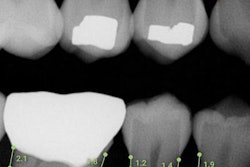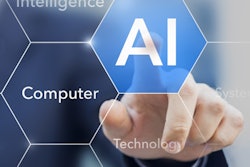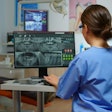
For some time, we have heard how artificial intelligence (AI) will play a role in dentistry in the future. With 2021 looming, Bruce Lieberthal and the other members of the Dental AI Council believe that the future could well be now.
Lieberthal, the chief innovation officer at Henry Schein, is one of 15 founding members of the Dental AI Council. Announced at the start of October, the Dental AI Council was formed to "educate and conduct research on the role artificial intelligence will play in future dentistry."
 Bruce Lieberthal.
Bruce Lieberthal.I interviewed Dr. Kyle Stanley, chief clinical officer at Pearl, as part of an article and podcast we published back in February about where AI was headed in dentistry. Now, almost nine months later, it's safe to say that the technology we discussed back then has advanced even further and has more applications.
That's one of the things I wanted to ask Lieberthal about as the council prepares for its first meeting.
"The idea of the council is to be as noncommercial as possible," Lieberthal said. "For me, the attraction to it is a number of things. AI is exciting but still a bit of an amorphous topic. People know what it is, but they're not quite sure how it applies practically to their world and, in this case, specifically to dentistry.
"This council has a very good cross-section of leaders in dentistry and we are all interested in this subject and know that AI is here. It's important to find a way to focus in on what's really important with AI and utilize that experience and that knowledge, and the research that the team will do to help advise the dental public as to how it is applied, how it is practical in dentistry, where it is today, and where it is going."
Lieberthal said that AI is already working in our society in so many ways, and it's important for dental professionals to understand that fact. AI has been around for more than 60 years, he added.
"AI is already a part of our everyday lives," Lieberthal said. "Here's an example. Think about the next time you go on Amazon and look at a product. If you notice, over the next several days, you'll see ads for that same product, but you also may see ads for products that are vaguely related or products that may be interesting to someone interested in the product you looked at. Those ads for products related to your interests are the result of an AI recommendation engine, which has picked up on a massive amount of consumer purchasing data and, whether we want to see those ads or not, is using that data to make some incredibly astute recommendations."
So what could AI do within dentistry? Lieberthal is excited when he thinks about the "ability for AI tools to assist a professional to make clinical decisions, diagnostic decisions, or therapeutic decisions," he said.
He is particularly interested in AI with imaging and how it can not only help diagnose but also decrease the chance of insurance fraud by sniffing out the same radiograph submitted for multiple procedures.
"The really great thing for the dentist and the payers, is that -- as you know -- what happens when a claim for a root canal or something similar is turned in, the dentist will turn that claim in with a radiograph," he explained. "Then, typically what happens is insurance companies take a random sampling of the claims that they get for procedures like that and they have dental professionals that report to them and look at these images manually and decide that, yes, this patient needed a root canal. The great thing about this kind of software is that we can make those decisions in real-time. And adjudication immediately of claims is quickly going to become a reality."
There are so many opportunities that AI will help bring to life in the next few months and years, Lieberthal said.
"I can't find a downside to this," he said. "It benefits the patient because doctors are able to find lesions more often, more accurately, and earlier. It helps doctors be better at what they do. It helps insurance be faster and more efficient. AI will benefit our industry in countless ways."
The comments and observations expressed herein do not necessarily reflect the opinions of DrBicuspid.com, nor should they be construed as an endorsement or admonishment of any particular idea, vendor, or organization.



















